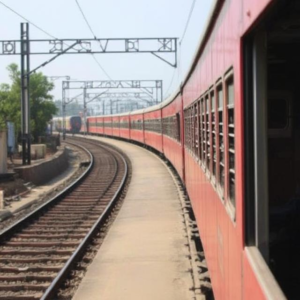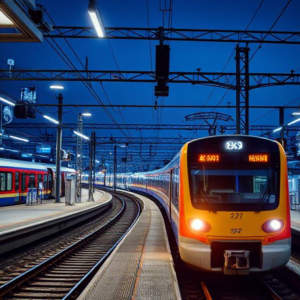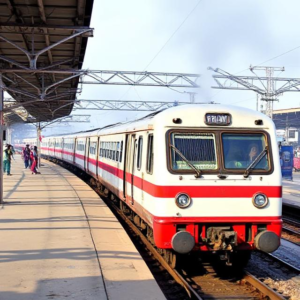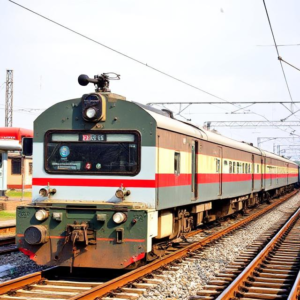Indian Railways is not just about transporting goods and passengers, but it also plays a big role in social welfare by ensuring that everyone, especially economically weaker sections, elderly people, and differently-abled passengers, can travel easily and affordably. Let’s break this down simply:
1. Railway Schemes for Economically Weaker Sections
Indian Railways has several programs that specifically help people from economically weaker sections of society. These schemes are aimed at making travel affordable and accessible to those who may not have a lot of money.
a. Concessions on Train Fares
- Indian Railways offers special fare concessions for certain groups of people who belong to economically weaker sections. These include:
- Students: Students often get discounts on train tickets to help them travel for education.
- Senior Citizens: Elderly passengers can avail of discounts on tickets as a part of their welfare.
- Women and Widows: Special discounts or concessions are also available for women and widows.
- Physically Challenged Individuals: Differently-abled passengers can avail of fare concessions to make travel more affordable.

b. Affordable Train Options
- Indian Railways also operates trains that offer affordable travel for people who might not be able to afford higher-class tickets. These are typically non-AC trains or sleeper class trains, which have cheaper ticket prices.
- Subsidized fares ensure that people from low-income backgrounds can travel longer distances without facing financial hardship.
c. Special Schemes for Rural Areas
- Indian Railways has also launched schemes to connect rural areas with urban centers, ensuring that even people from villages and remote locations can access affordable and regular transportation. This promotes economic growth in those areas by allowing people to travel for work, business, or education.
2. Assistance to Elderly and Differently-Abled Passengers
Indian Railways makes sure that elderly people and passengers with disabilities have the special assistance they need to travel safely and comfortably.
a. Reservation of Seats
- Indian Railways reserves special seats for elderly and differently-abled passengers. These seats are located near the doors and have easy access to make it easier for them to board and disembark. The seats are clearly marked so that other passengers don’t occupy them.
b. Wheelchair Assistance
- For differently-abled passengers, Indian Railways offers wheelchair facilities at stations. They can request a wheelchair before their journey, and station staff will assist them in boarding the train.
c. Accessible Stations
- Many railway stations are designed with special ramps, lifts, and elevators to make it easier for elderly and differently-abled passengers to move around. This helps ensure that they can travel with more independence and comfort.
d. Special Coaches for Differently-Abled Passengers
- Indian Railways has special coaches on trains that are designed to be more accessible for differently-abled passengers. These coaches have wider doors, space for wheelchairs, and other features that make travel easier.
e. Escort and Assistance Services
- Elderly passengers or those with disabilities can also request escort services at major stations. These services provide personal assistance to help them move from one place to another, whether it’s from the ticket counter to the platform or from the platform to the train.
f. Senior Citizen and Differently-Abled Quota
- Indian Railways has a special quota of seats reserved for elderly and differently-abled passengers, ensuring they don’t have to struggle to find available space on crowded trains.
g. Special Trains for the Elderly
- In some cases, Indian Railways runs special trains that are designed to cater to the needs of elderly passengers, with more comfortable seats, ramps for easy access, and reduced travel times.
3. Other Welfare Measures for Passengers
In addition to helping the economically weaker sections, elderly, and differently-abled passengers, Indian Railways also focuses on the overall welfare of all passengers:
a. Cleanliness and Hygiene
- Indian Railways works hard to ensure clean trains and stations, with dedicated efforts like cleaning staff, garbage disposal systems, and washroom facilities. Clean environments are especially important for elderly and differently-abled passengers, who may find it more difficult to use dirty facilities.
b. Awareness Campaigns
- Indian Railways often runs awareness programs to educate people on passenger rights and how to take advantage of special schemes for welfare, such as discount fares and accessible travel services.
Conclusion
Indian Railways is committed to improving the lives of people, especially those from economically weaker sections, the elderly, and differently-abled passengers. With affordable fares, special concessions, and assistance services, the railways ensure that travel is accessible to all, regardless of their economic background or physical abilities. These initiatives make sure that the railway system is inclusive and helps provide equal opportunities for everyone to travel, work, and connect with others across the country.
Keywords: Indian Railways, Railway











